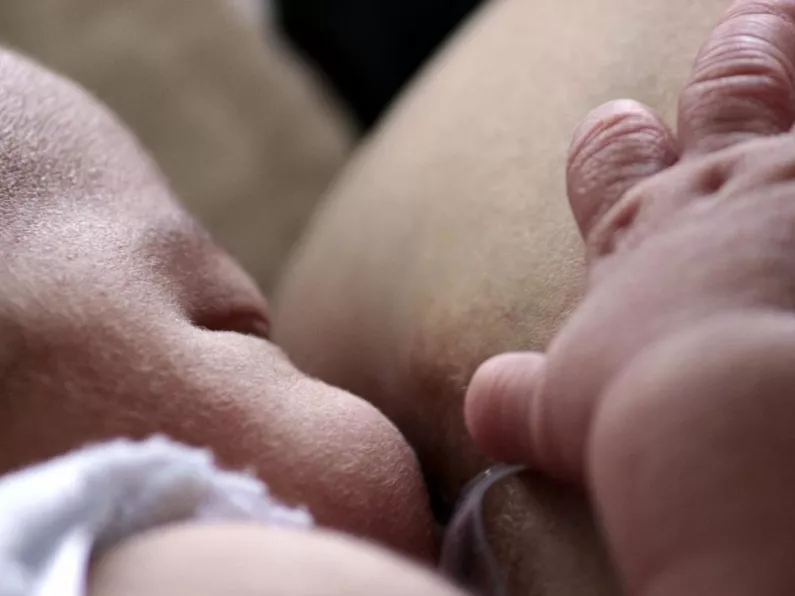Breastfeeding: where to start?
Breastfeeding is one of the most natural things in the world, but IF you choose to or can do it is another matter.
Despite it being so natural, it's not always easy and first-time moms often have lots of questions because they're worried they aren't doing it right.
Here's what you need to know about how often and how long to breastfeed your baby.
Breastfeeding: where to start
Newborn babies should breastfeed 8–12 times per day for about the first month.
Breast milk is easily digested, so newborns are hungry often and these frequent feedings help stimulate your milk supply during the first few weeks.
By the time your baby is 1–2 months old, they'll probably nurse 7–9 times a day.
In the first few weeks of life, breastfeeding should be "on demand" when your baby is hungry, which is about every 1 1/2 to 3 hours.
Yes, this is exhausting - especially at night - and it means you can do little else every day.
But as your baby grows, they'll nurse less often and may have a more predictable schedule.
Some might feed every 90 minutes, while others might go 2–3 hours between feeds.
It's recommended that newborns should not go more than about 4 hours without feeding, even overnight.
How do I count the time between feeds?
Count the length of time between feeds from the time your baby begins to nurse to when they start nursing again.
Newborns may nurse for up to 20 minutes or longer on one or both breasts. As babies get older and more skilled at breastfeeding, they may take about 5–10 minutes on each side.
How long it takes to breastfeed depends on you, your baby, and other elements like:
- your milk supply has come in (this usually happens 2–5 days after birth)
- your let-down reflex (which causes milk to flow from the nipple) happens right away or after a few minutes into a feed
- your milk flow is slow or fast
- the baby has a good latch, taking in as much as possible of your areola (the dark circle of skin around your nipple)
- your baby begins gulping right away or takes it slow
- your baby is sleepy or distracted.
Call your doctor if you're worried that your baby's feeds seem too short or too long.
Do I use the same breast all the time?
Alternate breasts and try to give each one the same amount of nursing time throughout the day.
This helps to keep up your milk supply in both breasts and prevents painful engorgement.
You may switch breasts in the middle of each feed and then alternate which breast you offer first.
Those first days and weeks are always a bit of a blur so it can help to attach a reminder — like a safety pin or small ribbon — to your bra strap so you'll know which breast your baby last nursed on.
Then, start with that breast at the next feeding. Or, keep a notebook handy or use a breastfeeding app to keep track of how your baby feeds.
How often should I burp my baby during feeds?
After your baby finishes on one side, try burping before switching breasts. Sometimes, the movement alone can be enough to cause a baby to burp.
Some infants need more burping, others less, and it can vary from feeding to feeding.
If your baby spits up a lot, try burping more often. While it's normal for infants to "spit up" a small amount after eating or during burping, a baby should not vomit after feeding.
If your baby throws up all or most of a feed, there could be a problem that needs medical care.
If you're worried that your baby is spitting up too much, call your doctor.
Growth spurts
When babies go through a period of rapid growth (called a growth spurt), they want to eat more than usual.
These can happen at any time but in the early months, growth spurts often happen when a baby is:
- 7–14 days old
- 2 months old
- 4 months old
- 6 months old
During these times and whenever your baby seems extra hungry, follow your little one's hunger cues. You may need to breastfeed more often for a while.
When do I stop breastfeeding?
Experts recommend that babies be breastfed exclusively (without formula, water, juice, non–breast milk, or food) for the first 6 months.
Then, they recommend continuing to breastfeed for 2 years (and beyond) if it works for you and your baby. Any length of time your baby can be breastfed is beneficial.
Breastfeeding studies show that it can lessen a baby's chances of diarrhea, ear infections, and bacterial meningitis, or make symptoms less severe.
Breastfeeding also may protect children from sudden infant death syndrome (SIDS), diabetes, obesity, and asthma.
For moms, breastfeeding helps shrink the uterus.
Breastfeeding also helps lower a woman's risk of diseases like:
- breast cancer
- high blood pressure
- diabetes
- heart disease







